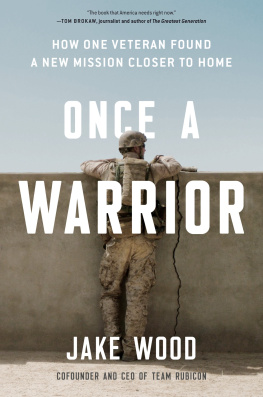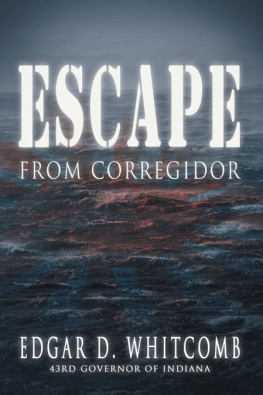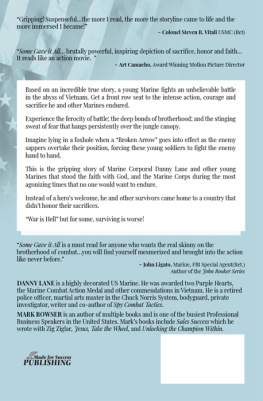My Years in a Pakistani Prison
The Untold Story of Kishorilal alias Amarik Singh alias Saleem, an Indian Spy in Pakistan
Kishorilal Sharma


Published in the United States by
Lancer Publishers LLC
855 Peachtree St, Suite 2602
Atlanta, GA 30308
under arrangement with Lancer Publishers & Distributors, New Delhi
Kishorilal Sharma, 2013
All rights reserved.
eISBN-13: 978-1-935501-92-3 eISBN-10: 1-935501-92-5
www.lancerpublishers.us
Book Overview
He was called for his service to the motherland. He reciprocated immediately. Giving up all familial relationships, he partook in a rigorous training programme that was a true test of his heart, body, mind and soul. Fighting off his cowardly hopes of quitting the organization so as to avoid the ordeal, he was finally made battle ready.
Slipped into enemy territory, his espionage attempts met with complete success. However luck soon turned against him, as during his third mission he was seized by the enemy camp and imprisoned. He was subjected to absolute third degree torture and only miraculously, and albeit divinely, escaped the contours of death on more that one occasion.
But he continued to strive towards seeing his own country once again. He looked forward to coming back home. And one day, God gave him that chance. He returned to the border once again, so that he could be united with his fellow countrymen.
Was the welcome given to him befitting that of a hero? Or even if not a heros welcome, certainly he neednt have been treated like a blackguard, a traitor!
Who was he after all a Spy, or a Soldier?
Author
The name Kishori Lal was given to me by my grandfather, Late Sh. Lakhpat Rai as he was informed about my birth at the village Gurudwara, where he was sitting for the daily Ardas. He requested the Granthi of the Gurudwara to find the first word from the Holy Script, the WAK of Sh. Guru Granth Saheb. The Granthi then pronounced K in Gurumukhi, i.e. Kakka or Kee. Then my grandfather named me Kishori Lal on 27th Feb, 1945.
My father, Late Sh. Gurbachan Ram was in service in the MES at Jallandhar Cantt. and was allotted a Govt. accommodation at 142, Hardyal Road. We were four brothers & three sisters, and after passing my matriculation examination from Punjab University, I joined an Automobile Engineering Course at the Institute of Motor Engineering London, through the British Institute of Engineering & Technology (BIET) Bombay by correspondence and completed the course. In the meantime I was in touch with Mr. Bhimsen, one of my elder brothers friends and he introduced me to an officer of the Ml. I was captured by the Pakistani Authorities and sentenced to 12 years when on assignment in Pakistani Territory. I was later released in accordance to the Shimla Agreement in the year of 1974, on 18th Sept.
As I was a trained engineer and just 32 years old at the time of my release, I could start my life all over again. I was married in 1979 and have one daughter and one son.
At present I am working with a private firm at Ludhiana since 1979 as a commercial manager (Ralson Group of Co.)
Contents
T his is the story of the most eventful period of my life from 1966 to 1976. The decade was also most tumultuous and turbulent. I joined the MI (Military Intelligence wing of the Indian army) in 1965 and after a brief stint of training was sent by my employers to Pakistan a number of times on a variety of assignments or missions. The first three assignments were successful in the sense that I completed the given tasks, crossed back into India and submitted the information gathered during my stay in Pakistan to the concerned officers of the MI in Jullundur. My fourth assignment proved to be disastrous, as I and a colleague, Gulzar Masih, who had also crossed over along with me were captured by the FIU (Field Intelligence Unit) of Pakistan on 18th September 1966 at Kasoor in Pakistani Punjab. After being lodged in the lockup of Kasoor Police Station overnight, I was shifted to a number of places which included some quarter guards of the Pakistani Army at undisclosed locations and finally the underground cells in the Shahi Quila at Lahore. During my custody in the Armys quarter guards as well as the Shahi Quila, I was subjected to the most inhuman and unspeakable tortures by the interrogators, after which the Sub-Divisional Magistrate of Kasoor sentenced me to two years rigorous imprisonment (RI) for illegal border crossing and a Field General Court Martial (FGCM) handed down another sentence of 10 years RI for violation of some unspecified provisions of the Official Secrets Act of Pakistan.
I was repatriated to India after eight years, on 18th September, 1974, on account of an agreement reached between the Governments of India and Pakistan for exchange of prisoners held in each others country prior to the 1971 war.
I could have written this book immediately after my repatriation in 1976 but didnt do so because of two reasons. First, soon after my return some personnel from the MI detachment at Jullundur would visit my place and threaten me with the dire consequences for my entire family if I dared to make public my links with MI or my experiences in Pakistan. Second, there was a lot of bitterness in my mind not only against those who tormented me while in custody in Pakistan but also those who lured me into joining the MI back home. The bitterness was so overpowering that an objective account of the events would not have been possible and truth would have been a casualty. The bitterness has died down almost completely because of sheer flux of time and I have tried to narrate the experience with absolute objectivityseeing the events and interpreting them not as a participant, but as a dispassionate bystander.
Questions about the objective and relevance for writing the book may be fully called for. In fact I was the first one to put those questions to myself before venturing to write. Life in agencies like the MI is shrouded in mystery. While a certain amount of secrecy may be a professional requirement in the interest of the security of the nation, sometimes the secrecy is used as a protective shield for activities that may not be compatible with the declared objectives of the organization. In a way the weapon of secrecy is also used to victimize operatives like me. To the extent possible and permissible I have tried to unveil the mystery about life inside these agencies. The treatment of detainees held on charges of spying is also not known to the outside world. I have tried to elaborate on this by narrating the horrifying experiences I had in person.
One significant aspect of my experience in the jails and other custodial facilities of Pakistan was that even in the worst of places one can find some extraordinarily good human beings. It was at the notorious interrogation chamber in Lahores Shahi Quila that I came across an Assistant Sub-Inspector of Pakistani Police, Malik Mohammad Akram, who risking his job walked into my cell one night and told me to recite a short, two line prayer in praise of the divine mother (Jaga Janani) that could lessen the pangs of torture being inflicted upon me by his colleagues. The prayer was told to ASI Akram by his mother Shanti Devi, a Hindu by birth who converted to Islam at the time of partition and married Akrams father, a Muslim who had no objection to Shanti Devi continuing to worship the divine mother even after her conversion to Islam and marriage to a devout Muslim. In Mianwali Jail, a Pakistani prisoner Bashir Ahmad of Sargodha presented to me a Gutkha of the Guru Granth sahab that belonged to his late father, a Sikh by birth, who converted to Islam and remained in Pakistan at the time of partition. Sheikh Ehsan Ghani, the Superintendent of Multan Central Jail saved the lives of nearly two dozen Indian prisoners including me when a trigger happy commander of the Pakistani rangers wanted to shoot us all down by opening machine gun fire on the pretext of quelling a riot in the jail. Over my dead body, was the firm assertion of Sheikh Ehsan Ghani who actually blocked the barrel of the machine gun by standing in front of it and declaring that as his prisoners we were under his protection and a true Muslim protects even at the cost of his life those who are under his care. The list could be very long and as you go through the book you will come across wonderful people like Gulkhan Pathan, Baba Sher and Umarkhan to name just a few. The book will thus help break some of the stereotypes normally entertained about our brethren across the border.
Next page






